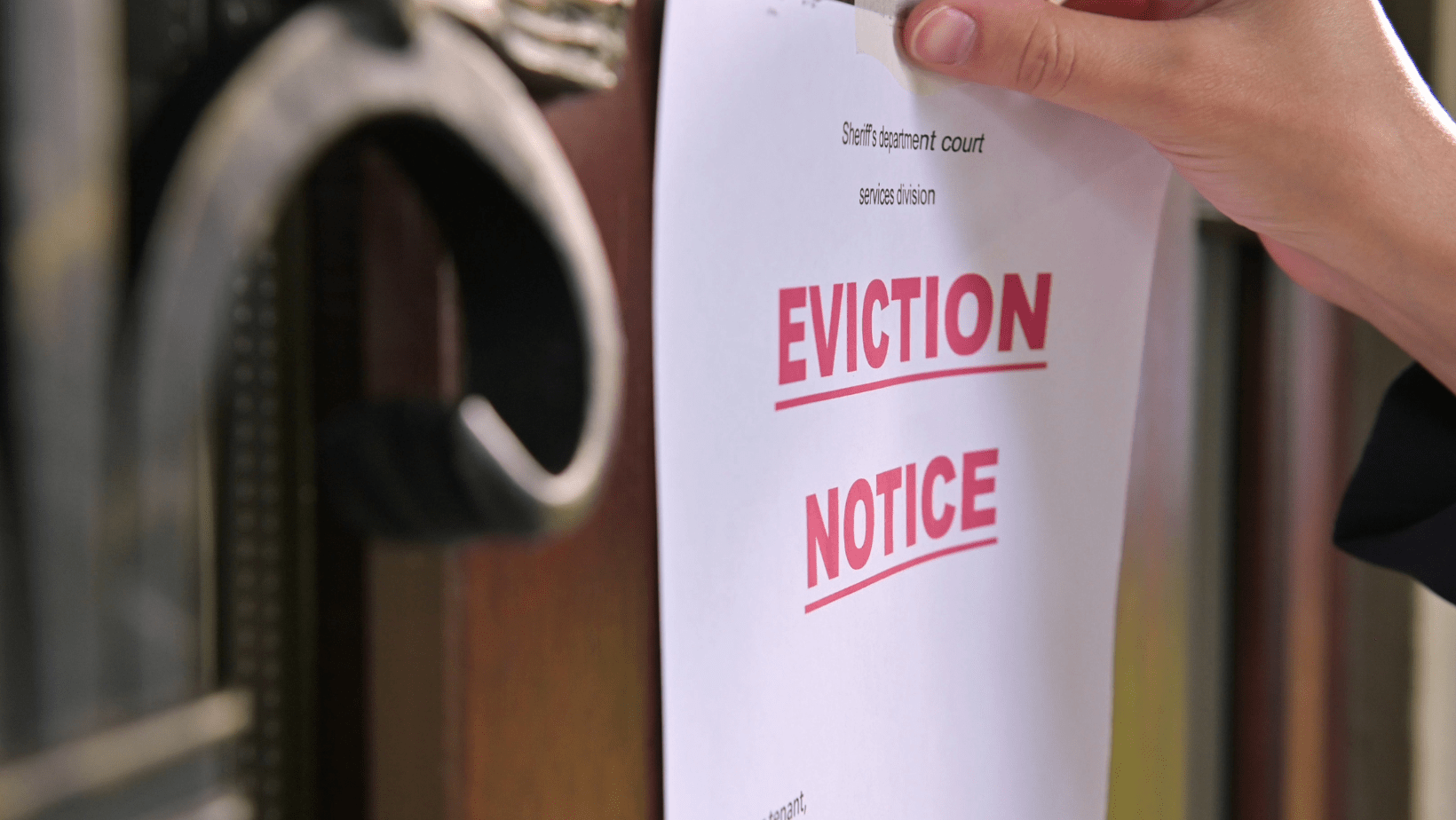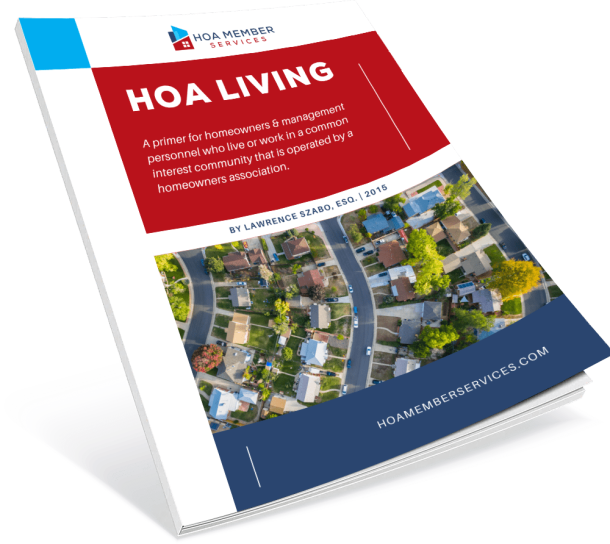Imagine coming home after a long day, sorting through your mail, and opening a letter from your HOA. Inside? A threat of legal action — and a warning that your homeownership might be on the line.
It’s a scenario that feels more like a nightmare than real life, yet it’s one that many homeowners have faced. Which brings us to the big question: Can an HOA evict you?
The short answer is: not directly, but under certain circumstances, they can do something similar.
While HOAs don’t have the same authority as landlords or government entities, they do have powerful legal tools at their disposal. And if things escalate far enough, you could find yourself fighting to stay in the very property you own.
In this article, we’ll break down exactly what your HOA can and cannot do, the legal limits of their enforcement powers, and the steps you can take if your rights are being pushed too far.

What is an HOA and What Powers Does It Have?
Think of a Homeowners Association (HOA) like a mini local club that runs your neighborhood. When you buy a home in certain communities, especially condos or planned developments, you’re automatically part of it.
Here’s the basic idea:
- It sets community rules – things like how tall your grass can be, where you can park, or even what color you can paint your front door.
- It manages shared resources – think pools, parks, and clubhouses.
- It handles collective upkeep – making sure common areas stay clean, maintained, and presentable.
HOAs get their authority from bylaws and Covenants, Conditions, and Restrictions (CCRs) — legal documents that outline what’s allowed and what’s not in your neighborhood.
But here’s what’s important: an HOA isn’t the government. It can’t arrest you, it doesn’t write laws, and it doesn’t have unlimited power.
Yes, it can fine you, place a lien, and under certain conditions even foreclose on a home — but it has to follow state laws and its own rules to do that. It’s not all-powerful, even if it sometimes feels like it.
The Real Meaning of “Eviction” in an HOA Context
When most people hear the word eviction, they picture a landlord changing the locks and tossing someone’s stuff on the lawn. But in the world of homeowners associations (HOAs), it doesn’t quite work that way.
- Eviction vs. foreclosure — there’s a difference: Eviction is what happens when a tenant gets kicked out by a landlord. Foreclosure is something else entirely — it’s a legal process that can end with your home being sold to cover unpaid dues.
- HOAs don’t evict like landlords, but they can force a sale. If you rack up enough unpaid fees or violate the rules long enough, your HOA could start foreclosure proceedings. That’s the HOA version of an “eviction” — not instant, but very real.
Simply put: HOAs don’t show up with a sheriff and a moving truck, but they do have serious power. If you’re not careful, they could push the issue all the way to court, and out of your home.
So yeah, when people ask, “Can an HOA evict you?” the short answer is not exactly. But the long answer? It’s worth paying attention to. Let’s get right into that.

How Eviction Happens — And When You’re at Risk
In an HOA community, eviction isn’t something that happens out of the blue, but it can happen if things spiral far enough. Most homeowners don’t realize how many steps it actually takes before an HOA can force you out. It’s not immediate, but it is very real if left unchecked.
Here’s what can put you on the radar:
- Unpaid HOA dues – These might seem small at first, but they can snowball quickly, especially once late fees and interest kick in.
- Major covenant violations – We’re talking significant issues here, like building without approval, operating a business out of your home, or causing repeated disturbances.
- Legal judgments – If the HOA takes you to court and wins (for example, over unpaid assessments or damages), the consequences can be serious.
So what happens next if nothing gets resolved? It usually unfolds like this:
Warning letters → Fines → Liens → Foreclosure → Forced sale
It’s not something that happens overnight. HOAs generally have to jump through several legal hoops before they can take serious action.
You’ll usually get multiple chances to fix the issue, respond, or settle — but ignoring the warnings can put your home at real risk.
Can an HOA Evict You If Your House Is Paid Off?
It’s a hard pill to swallow, but yes, an HOA can evict you even if your house is completely paid off. This surprises a lot of homeowners, and honestly, it’s easy to see why. Most people think that once the mortgage is gone, they’re in the clear.
No bank, no loan, no monthly payments — so what’s left to worry about? But unfortunately, owning your home outright doesn’t mean you’re free from all obligations.
If you live in a community governed by a homeowners association, you’ve agreed to follow their rules and keep up with dues. Those dues aren’t optional, and the rules aren’t suggestions.
Fall far enough behind on payments or rack up serious or repeated violations, and the HOA can take legal action. In some states, that includes placing a lien on your property and even foreclosing on it.
That’s where the shock hits most people. The idea that you could lose a home you fully own, not to a bank, but to your neighborhood association, feels backwards.
But from the HOA’s perspective, it’s about protecting the integrity of the community and enforcing the terms everyone agreed to. Unfortunately, that enforcement can go as far as eviction (foreclosure), even if your mortgage has long since been paid off.

What the Law Says — And Where It Gets Tricky
The power an HOA has to evict (or more accurately, foreclose) really depends on where you live.
In some states, laws are designed to protect homeowners more aggressively. That means it’s harder for an HOA to foreclose on your property or push you out. There are more procedural safeguards, more time to respond, and stricter limits on what an HOA can do.
In other states, though, HOAs have more leeway, and they can act a lot faster.
Legally, homeowners are supposed to get due process. That means you have the right to be notified, to tell your side, and to try and fix the issue before anything drastic happens. But how do those protections actually work? That varies. A lot.
One of the trickiest things is that HOAs aren’t government bodies, but they can still enforce rules that feel pretty official. And because they operate in this legal gray zone — part contract, part property law — it’s easy to get caught off guard.
What to Do If You’re Facing This
Getting threats of eviction from your HOA can feel like the ground’s falling out from under you. But before you panic or go radio silent, here’s what you actually need to do:
- Don’t ignore notices; communicate with the board. Even if the notice sounds intense, staying silent can make things worse. Reach out early, and try to understand where things stand.
- Check your bylaws and state law. A lot of HOA power comes from what’s written in black and white. Knowing the rules can help you figure out if they’re overstepping — or if there’s a fix you haven’t seen yet.
- Get legal help early. Don’t wait for things to explode. With our unlimited personal support, you can connect with legal experts who’ll guide you step by step, without racking up hourly fees.
- Consider mediation first and use the court as a last resort. Most issues don’t need to end in a courtroom. Mediation is often faster and cheaper, and in many cases, it’s required before either side can escalate.
The bottom line? You’ve got more options than it might feel like. Taking action early gives you the best shot at protecting your home and your peace of mind.

Can An HOA Evict You? The Final Verdict
So, can an HOA actually evict you? Not exactly — but don’t let that give you a false sense of security. While they can’t throw you out like a landlord might, HOAs can foreclose on your home, even if it’s completely paid off.
That’s right; owning your home free and clear doesn’t mean you’re untouchable.
The best defense? Stay informed, stay engaged, and never ignore those letters, no matter how petty they seem.
And if you’re already in hot water or just want peace of mind, don’t wait for things to escalate. Our members get unlimited Personal Support from an experienced HOA attorney.
Become a member today and take back control before your HOA takes the lead.


